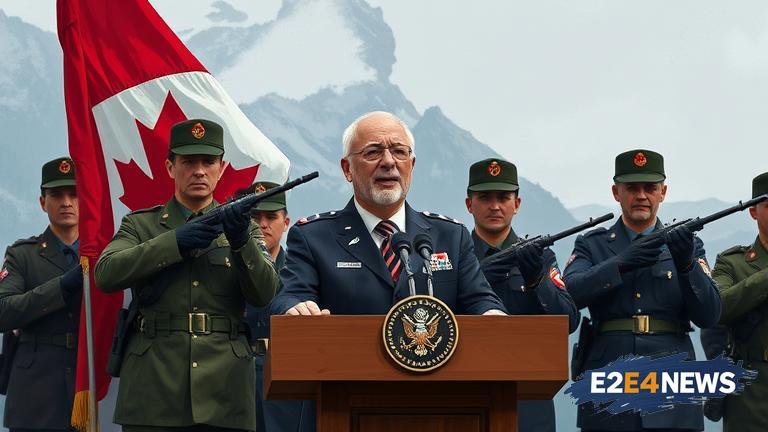Canada’s Prime Minister recently announced a new defense strategy aimed at strengthening the country’s military capabilities and enhancing its ability to respond to emerging global security threats. The plan, which has been in development for several months, outlines a comprehensive approach to defense and security, including significant investments in new technologies and equipment. The strategy also emphasizes the importance of collaboration and cooperation with international partners, including NATO and other like-minded countries. According to the Prime Minister, the new defense strategy is designed to ensure that Canada remains a credible and reliable partner on the world stage, while also protecting the safety and security of its citizens. The plan includes a range of initiatives, such as the development of new cyber security capabilities, the acquisition of advanced fighter jets, and the expansion of Canada’s special forces. The government has also committed to increasing defense spending over the next several years, with a focus on investing in new technologies and equipment. The new defense strategy has been welcomed by many experts, who see it as a necessary response to the increasingly complex and rapidly evolving global security landscape. However, some critics have expressed concerns about the potential costs and implications of the plan, including the potential for increased militarization and the impact on Canada’s relationships with other countries. Despite these concerns, the government remains committed to implementing the new defense strategy, which it sees as essential to ensuring Canada’s security and prosperity in the years ahead. The plan is also seen as an opportunity for Canada to play a more prominent role in international affairs, including through its participation in NATO and other global security initiatives. In recent years, Canada has been actively engaged in a range of international security efforts, including missions in Iraq, Ukraine, and the Middle East. The new defense strategy is designed to build on these efforts, while also addressing emerging security challenges, such as cyber threats and terrorism. The government has also emphasized the importance of investing in the Canadian Armed Forces, including through the recruitment and retention of personnel, as well as the development of new training and education programs. The plan also includes a range of initiatives aimed at supporting the families of military personnel, including access to housing, healthcare, and education. Overall, the new defense strategy is seen as a major development in Canada’s approach to defense and security, and is likely to have significant implications for the country’s role in international affairs. The strategy is also expected to have a major impact on Canada’s economy, including through the creation of new jobs and opportunities in the defense sector. The government has also committed to working closely with industry partners to develop new technologies and equipment, including through the establishment of new research and development initiatives. In addition to its focus on defense and security, the plan also emphasizes the importance of promoting Canadian values and interests abroad, including through the promotion of democracy, human rights, and the rule of law. The strategy is also seen as an opportunity for Canada to play a more prominent role in promoting international peace and security, including through its participation in United Nations peacekeeping missions. The government has also emphasized the importance of addressing the root causes of conflict and instability, including through the promotion of economic development and poverty reduction. Overall, the new defense strategy is a comprehensive and ambitious plan that is designed to ensure Canada’s security and prosperity in the years ahead, while also promoting Canadian values and interests abroad.
